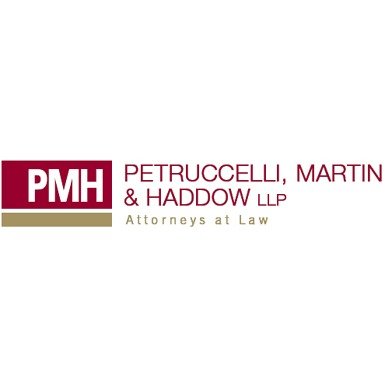Best New Business Formation Lawyers in Maine
Share your needs with us, get contacted by law firms.
Free. Takes 2 min.
Or refine your search by selecting a city:
List of the best lawyers in Maine, United States
About New Business Formation Law in Maine, United States
New business formation law in Maine encompasses the legal steps and requirements for starting a new business within the state. This area of law covers choosing the correct business entity, registering the business, obtaining necessary permits and licenses, complying with tax obligations, and fulfilling other state and local requirements. Maine’s specific legal framework ensures that businesses are properly established, owners are protected from personal liability when applicable, and all regulatory obligations are met from day one.
Why You May Need a Lawyer
Many entrepreneurs seek legal advice during the business formation process to avoid costly mistakes and misunderstandings. Common scenarios where legal help is beneficial include:
- Choosing the right business structure, such as an LLC, corporation, partnership, or sole proprietorship
- Drafting and reviewing foundational documents like operating agreements or articles of incorporation
- Ensuring compliance with state and federal laws, as well as local ordinances
- Negotiating partnership agreements or resolving disputes among co-founders
- Securing appropriate licenses and permits required for specific industries
- Advising on intellectual property protections, such as trademarks and copyrights
- Guiding through the tax registration process and ongoing compliance
- Helping foreign investors and non-residents understand Maine’s legal requirements
Legal support can prove invaluable in setting a strong foundation for your business and preventing future legal issues.
Local Laws Overview
Several key aspects of Maine law are especially relevant for those forming new businesses:
- Entity Formation: Maine allows businesses to form as sole proprietorships, partnerships, limited liability companies (LLCs), corporations, and other specialized structures. Each has specific filing requirements with the Maine Secretary of State.
- Business Name Registration: Business names must be distinguishable in Maine and comply with state rules on naming conventions. Filing a Certificate of Assumed Name may be required if operating under a trade name.
- Licenses and Permits: Businesses may need a state business license, local permits, or industry-specific licenses. Requirements vary by location and occupation.
- Employer Requirements: If hiring employees, new businesses must register for state withholding tax, unemployment insurance, and workers’ compensation insurance.
- Annual Reports: LLCs and corporations must file annual reports and pay associated fees to maintain good standing.
- Tax Obligations: Businesses need to register for Maine taxes, such as sales tax, income tax, and payroll taxes if applicable.
- Zoning and Land Use: Local zoning regulations may affect business locations and uses.
Understanding these requirements is crucial to ensure compliance and avoid penalties.
Frequently Asked Questions
What is the best legal structure for my new business in Maine?
The ideal structure depends on factors like your business goals, desired level of liability protection, tax considerations, and plan for ownership. Common options include LLCs for liability protection and flexibility, corporations for scalability, and sole proprietorships for simplicity. Consulting a lawyer or accountant can help you make the best choice.
How do I register my business in Maine?
You typically file formation documents (such as articles of incorporation for a corporation or a certificate of formation for an LLC) with the Maine Secretary of State. Sole proprietors and partnerships may need to file a Certificate of Assumed Name if using a business name.
Do I need a business license to operate in Maine?
Maine does not have a universal state business license, but most businesses require local permits or specific licenses depending on their industry and location. Always check with your local city or town office and any relevant state agencies.
What is an annual report, and do I need to file one?
Annual reports are filings that provide updated information about your business to the state. LLCs and corporations in Maine must file annual reports and pay a filing fee to stay in good standing.
How can I protect my personal assets from business liabilities?
Forming entities like LLCs or corporations can help shield your personal assets from business debts and liabilities, as long as you maintain proper separation between personal and business finances and follow required corporate formalities.
What are Maine's tax requirements for new businesses?
Maine businesses may need to register for state taxes, including income tax withholding, sales tax, and unemployment insurance tax. Requirements vary by business type, industry, and whether you hire employees.
How do I obtain an Employer Identification Number (EIN)?
You can apply for an EIN through the IRS, free of charge, either online or by mailing in a form. An EIN is often required to open a business bank account and hire employees.
Can foreign individuals or entities form a business in Maine?
Yes, foreign individuals and entities can form businesses in Maine, although additional documentation and compliance steps may apply. Working with a lawyer familiar with foreign business formation is advised.
What is a Certificate of Assumed Name and do I need one?
A Certificate of Assumed Name (also known as a DBA or "Doing Business As" filing) is required if you are operating your business under a name other than your personal name or your entity’s registered name. It must be filed with the local city or town office or with the Secretary of State for certain business types.
Do I need an attorney to form my business in Maine?
While it is not legally required to hire an attorney, doing so can help ensure that you are in full compliance with all relevant laws, understand your obligations, and properly structure your business to protect your interests.
Additional Resources
Several organizations and offices can assist those forming a new business in Maine:
- Maine Secretary of State - Bureau of Corporations, Elections & Commissions
- Small Business Administration (SBA) Maine District Office
- Maine Department of Economic and Community Development
- Maine Revenue Services for tax guidance
- SCORE Maine (free business mentoring and education)
- Local city or town offices for business permits and zoning
Utilizing these resources can simplify the process and help answer specific regulatory questions.
Next Steps
If you are considering forming a new business in Maine, start by clarifying your business idea and identifying your legal structure options. Prepare a checklist of required filings, licenses, and tax registrations based on your business type and location. Consider consulting a qualified business attorney to review your plans, assist with document preparation, and ensure that you are compliant with all state and local laws. Taking these steps early will help lay a solid foundation for your new venture and reduce legal risk as your business grows.
Lawzana helps you find the best lawyers and law firms in Maine through a curated and pre-screened list of qualified legal professionals. Our platform offers rankings and detailed profiles of attorneys and law firms, allowing you to compare based on practice areas, including New Business Formation, experience, and client feedback.
Each profile includes a description of the firm's areas of practice, client reviews, team members and partners, year of establishment, spoken languages, office locations, contact information, social media presence, and any published articles or resources. Most firms on our platform speak English and are experienced in both local and international legal matters.
Get a quote from top-rated law firms in Maine, United States — quickly, securely, and without unnecessary hassle.
Disclaimer:
The information provided on this page is for general informational purposes only and does not constitute legal advice. While we strive to ensure the accuracy and relevance of the content, legal information may change over time, and interpretations of the law can vary. You should always consult with a qualified legal professional for advice specific to your situation.
We disclaim all liability for actions taken or not taken based on the content of this page. If you believe any information is incorrect or outdated, please contact us, and we will review and update it where appropriate.
Browse new business formation law firms by city in Maine
Refine your search by selecting a city.











